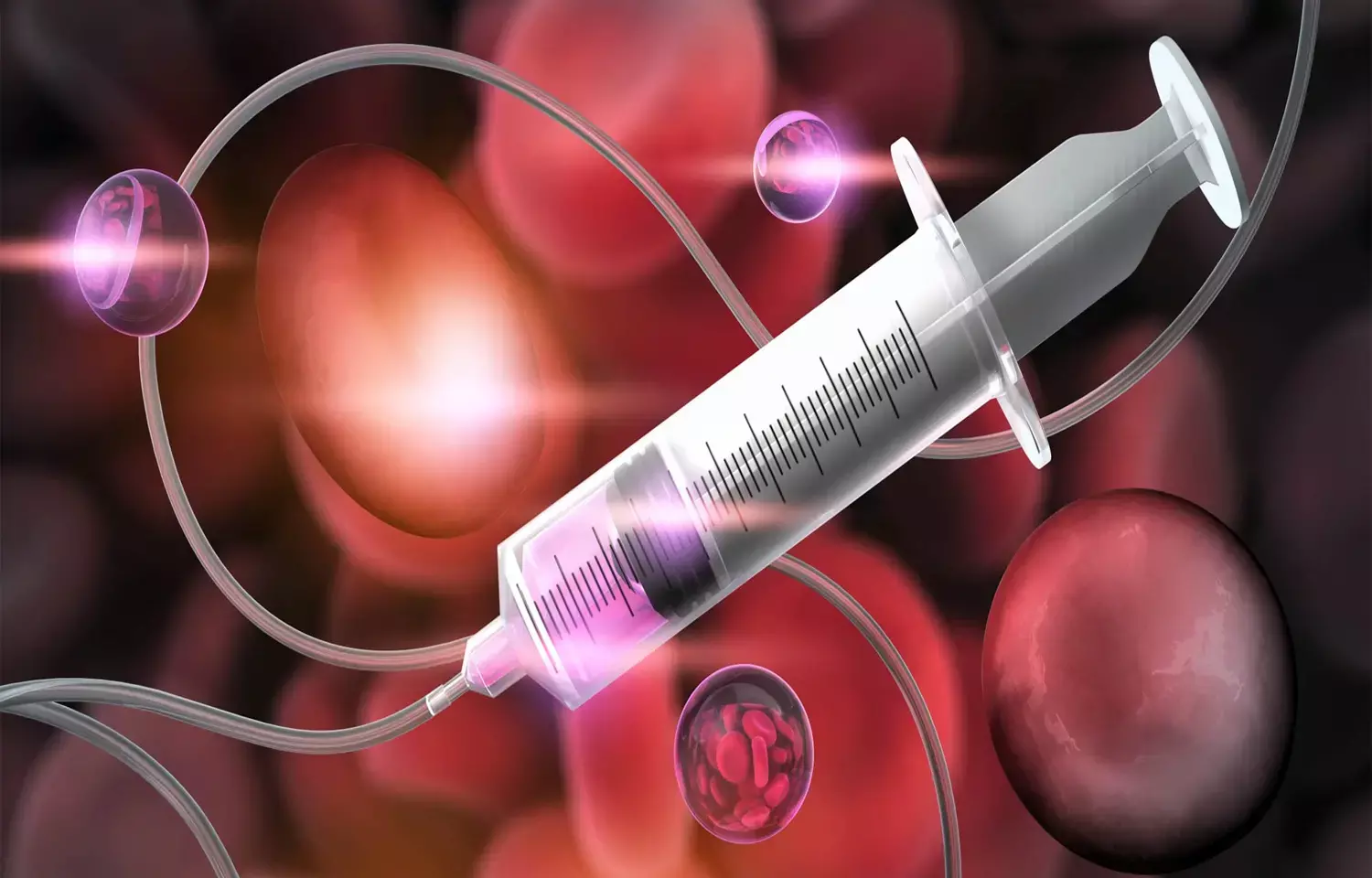- Home
- Medical news & Guidelines
- Anesthesiology
- Cardiology and CTVS
- Critical Care
- Dentistry
- Dermatology
- Diabetes and Endocrinology
- ENT
- Gastroenterology
- Medicine
- Nephrology
- Neurology
- Obstretics-Gynaecology
- Oncology
- Ophthalmology
- Orthopaedics
- Pediatrics-Neonatology
- Psychiatry
- Pulmonology
- Radiology
- Surgery
- Urology
- Laboratory Medicine
- Diet
- Nursing
- Paramedical
- Physiotherapy
- Health news
- Fact Check
- Bone Health Fact Check
- Brain Health Fact Check
- Cancer Related Fact Check
- Child Care Fact Check
- Dental and oral health fact check
- Diabetes and metabolic health fact check
- Diet and Nutrition Fact Check
- Eye and ENT Care Fact Check
- Fitness fact check
- Gut health fact check
- Heart health fact check
- Kidney health fact check
- Medical education fact check
- Men's health fact check
- Respiratory fact check
- Skin and hair care fact check
- Vaccine and Immunization fact check
- Women's health fact check
- AYUSH
- State News
- Andaman and Nicobar Islands
- Andhra Pradesh
- Arunachal Pradesh
- Assam
- Bihar
- Chandigarh
- Chattisgarh
- Dadra and Nagar Haveli
- Daman and Diu
- Delhi
- Goa
- Gujarat
- Haryana
- Himachal Pradesh
- Jammu & Kashmir
- Jharkhand
- Karnataka
- Kerala
- Ladakh
- Lakshadweep
- Madhya Pradesh
- Maharashtra
- Manipur
- Meghalaya
- Mizoram
- Nagaland
- Odisha
- Puducherry
- Punjab
- Rajasthan
- Sikkim
- Tamil Nadu
- Telangana
- Tripura
- Uttar Pradesh
- Uttrakhand
- West Bengal
- Medical Education
- Industry
Use of intravenous tranexamic acid not linked to thromboembolic events: JAMA

Tranexamic acid (TXA) is an efficient antifibrinolytic agent; however, concerns remain about the potential adverse effects, particularly vascular occlusive events, that may be associated with its use.
Findings from a recent systematic review and meta-analysis of 216 studies suggested that intravenous Tranexamic acid (TXA), irrespective of dosing, is not associated with increased risk of any TE. Authors further concluded "These results help clarify the incidence of adverse events associated with administration of intravenous Tranexamic acid (TXA) and suggest that TXA is safe for use with undetermined utility for patients receiving neurological care." The findings have been put forth in JAMA Surgery.
To have a detailed knowledge, the team of researchers sought to carry out the current study to examine the association between intravenous TXA and total thromboembolic events (TEs) and mortality in patients of all ages and of any medical disciplines.
For the Data Source, Cochrane Central Register of Controlled Trials and MEDLINE were searched for eligible studies investigating intravenous TXA and postinterventional outcome published between 1976 and 2020. Randomized clinical trials comparing intravenous TXA with placebo/no treatment were selected. The electronic database search yielded a total of 782 studies, and 381 were considered for full-text review. Included studies were published in English, German, French, and Spanish. Studies with only oral or topical tranexamic administration were excluded. Meta-analysis, subgroup and sensitivity analysis, and meta-regression were performed. This study followed the Preferred Reporting Items for Systematic Reviews and Meta-analyses (PRISMA) reporting guideline.
Main Outcomes and Measures assessed were Vascular occlusive events and mortality.
Data analysis revealed the following results.
- A total of 216 eligible trials including 125 550 patients were analyzed. Total TEs were found in 1020 (2.1%) in the group receiving TXA and 900 (2.0%) in the control group.
- This study found no association between TXA and risk for total TEs (risk difference = 0.001; 95% CI, −0.001 to 0.002; P = .49) for venous thrombosis, pulmonary embolism, venous TEs, myocardial infarction or ischemia, and cerebral infarction or ischemia. Sensitivity analysis using the risk ratio as an effect measure with (risk ratio = 1.02; 95% CI, 0.94-1.11; P = .56) and without (risk ratio = 1.03; 95% CI, 0.95-1.12; P = .52) studies with double-zero events revealed robust effect size estimates. Sensitivity analysis with studies judged at low risk for selection bias showed similar results.
- Administration of TXA was associated with a significant reduction in overall mortality and bleeding mortality but not with nonbleeding mortality.
- In addition, an increased risk for vascular occlusive events was not found in studies including patients with a history of thromboembolism. Comparison of studies with sample sizes of less than or equal to 99 (risk difference = 0.004; 95% CI, −0.006 to 0.014; P = .40), 100 to 999 (risk difference = 0.004; 95% CI, −0.003 to 0.011; P = .26), and greater than or equal to 1000 (risk difference = −0.001; 95% CI, −0.003 to 0.001; P = .44) showed no association between TXA and incidence of total TEs. Meta-regression of 143 intervention groups showed no association between TXA dosing and risk for venous TEs (risk difference, −0.005; 95% CI, −0.021 to 0.011; P = .53).
For full article follow the link: 10.1001/jamasurg.2021.0884
Primary source: JAMA Surgery
Dr Satabdi Saha (BDS, MDS) is a practicing pediatric dentist with a keen interest in new medical researches and updates. She has completed her BDS from North Bengal Dental College ,Darjeeling. Then she went on to secure an ALL INDIA NEET PG rank and completed her MDS from the first dental college in the country – Dr R. Ahmed Dental College and Hospital. She is currently attached to The Marwari Relief Society Hospital as a consultant along with private practice of 2 years. She has published scientific papers in national and international journals. Her strong passion of sharing knowledge with the medical fraternity has motivated her to be a part of Medical Dialogues.
Dr Kamal Kant Kohli-MBBS, DTCD- a chest specialist with more than 30 years of practice and a flair for writing clinical articles, Dr Kamal Kant Kohli joined Medical Dialogues as a Chief Editor of Medical News. Besides writing articles, as an editor, he proofreads and verifies all the medical content published on Medical Dialogues including those coming from journals, studies,medical conferences,guidelines etc. Email: drkohli@medicaldialogues.in. Contact no. 011-43720751


